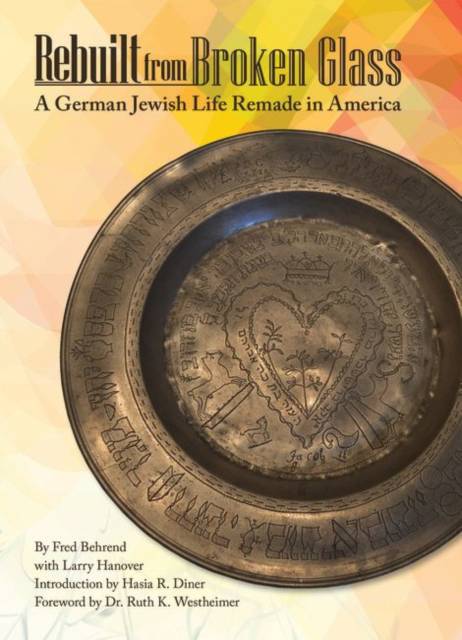
- Retrait gratuit dans votre magasin Club
- 7.000.000 titres dans notre catalogue
- Payer en toute sécurité
- Toujours un magasin près de chez vous
- Retrait gratuit dans votre magasin Club
- 7.000.0000 titres dans notre catalogue
- Payer en toute sécurité
- Toujours un magasin près de chez vous
41,95 €
+ 83 points
Description
Symbolized by a three-hundred-year-old Seder plate, the religious life of Fred Behrend's family had centered largely around Passover and the tale of the Jewish people's exodus from tyranny. When the Nazis came to power, the wide-eyed boy and his family found themselves living a twentieth-century version of that exodus, escaping oppression and persecution in Germany for Cuba and ultimately a life of freedom and happiness in the United States. Behrend's childhood came to a crashing end with Kristallnacht (the Night of Broken Glass) and his father's harrowing internment at the Sachsenhausen concentration camp. But he would not be defined by these harrowing circumstances. Behrend would go on to experience brushes with history involving the defeated Germans. By the age of twenty, he had run a POW camp full of Nazis, been an instructor in a program aimed at denazifying specially selected prisoners, and been assigned by the U.S. Army to watch over Wernher von Braun, the designer of the V-2 rocket that terrorized Europe and later chief architect of the Saturn V rocket that sent Americans to the moon. Behrend went from a sheltered life of wealth in a long-gone, old-world Germany, dwelling in the gilded compound once belonging to the manufacturer of the zeppelin airships, to a poor Jewish immigrant in New York City learning English from Humphrey Bogart films. Upon returning from service in the U.S. Army, he rose out of poverty, built a successful business in Manhattan, and returned to visit Germany a dozen times, giving him unique perspective into Germany's attempts to surmount its Nazi past.
Spécifications
Parties prenantes
- Auteur(s) :
- Editeur:
Contenu
- Nombre de pages :
- 232
- Langue:
- Anglais
- Collection :
Caractéristiques
- EAN:
- 9781557537843
- Date de parution :
- 15-07-17
- Format:
- Livre relié
- Format numérique:
- Genaaid
- Dimensions :
- 152 mm x 234 mm
- Poids :
- 453 g

Les avis
Nous publions uniquement les avis qui respectent les conditions requises. Consultez nos conditions pour les avis.






